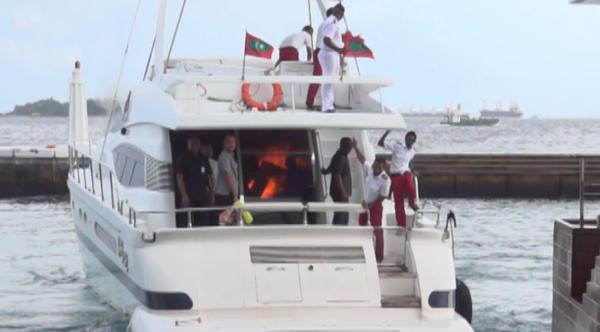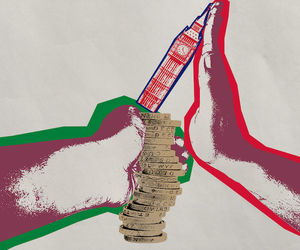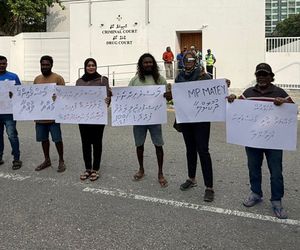The explosion on Yameen’s speedboat: What we know so far
The cause of an explosion on President Abdulla Yameen’s speedboat remains unclear, but here are the important details of the inquiry, which has seen the arrest of three soldiers, a shakeup of the security forces and raids on government offices, and homes of a businessman and a top tourism official.

18 Oct 2015, 9:00 AM
Malé City’s residents were up for the fifth night running on Saturday as rumours swirled of imminent raids as part of an ongoing investigation into an explosion on President Abdulla Yameen’s speedboat.
The alleged assassination attempt on September 28 has deepened the Maldives’ political crisis with a shakeup of the security forces, arrests of soldiers and raids on government offices and the homes of individuals linked with Vice President Ahmed Adeeb.
What happened, when and where?
Yameen was scheduled to meet with the press on his arrival from Saudi Arabia, where he had performed the Hajj pilgrimage, on the morning of September 28. As the ‘Finifenmaa’ speedboat docked at the pier at 8am, journalists at the scene heard a loud blast. The speedboat’s door fell off, spewing out black smoke.
Become a member
Get full access to our archive and personalise your experience.
Already a member?
Discussion
No comments yet. Be the first to share your thoughts!
No comments yet. Be the first to join the conversation!
Join the Conversation
Sign in to share your thoughts under an alias and take part in the discussion. Independent journalism thrives on open, respectful debate — your voice matters.




